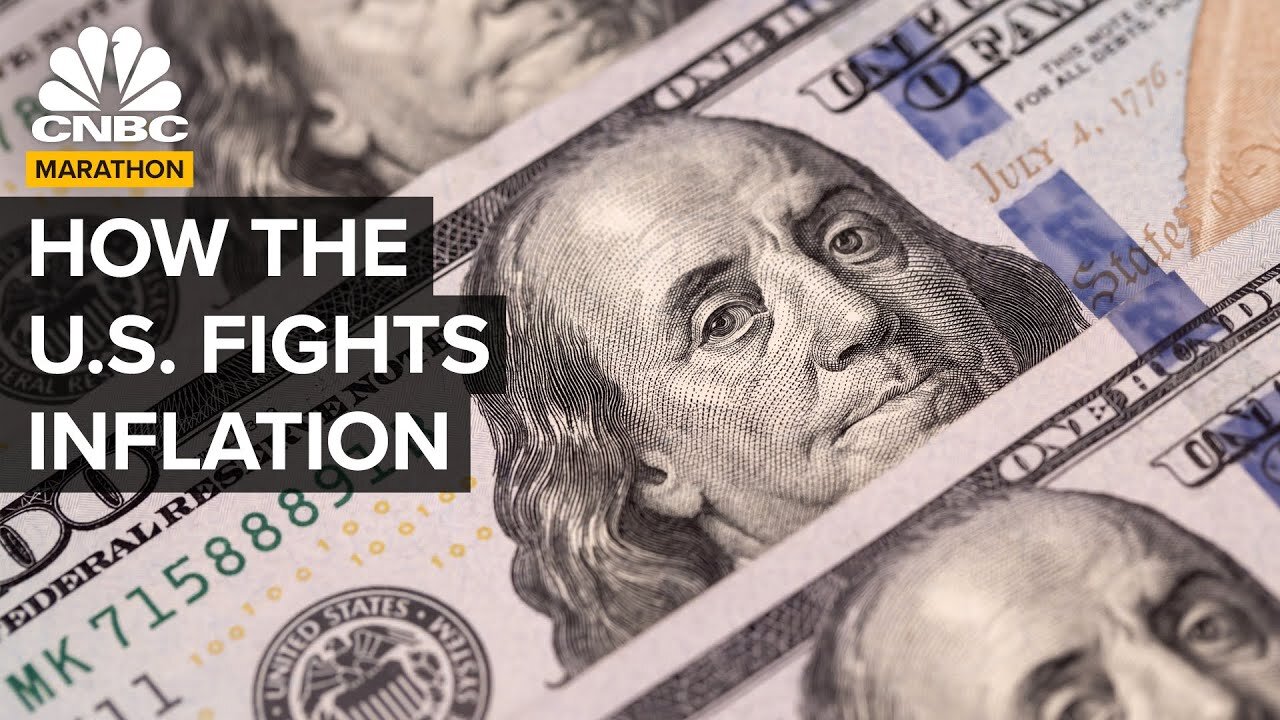Premium Only Content

How The U.S. Tries To Control Inflation
Americans are experiencing inflation at a rate not seen since the 1980s. Increased cost of goods and services are hitting the wallets of consumers. America’s central bank, the Federal Reserve, is poised to increase interest rates throughout 2022 to combat inflation by making it more expensive to borrow. In the last two years during the Covid-19 pandemic, the Federal Reserve has utilized a number of tools to control the United States economy.
To prevent breakdowns during emergencies, the Federal Reserve, can inject cash into the financial sector. One way it does so is through the large-scale purchase of bonds. The central bank has racked up nearly $9 trillion in bonds to calm investors during past crises. The pace at which the Fed tightens monetary policy may create substantial market headwinds. Members of the Federal Reserve are debating how quickly to reduce the central bank’s portfolio of bonds, without starting a recession.
In 2021, inflation rose at a rate not seen in more than three decades. Congress gave the Federal Reserve a mandate to maintain stable prices. The bank, with its power to lend and set interest rates, is getting a test in the form of a snarled supply chain and a world continuing to recover from the pandemic. As a result, economists across the spectrum wonder if the Fed can control this bout of price spikes.
Lawrence Mishel, a distinguished fellow at the Economic Policy Institute, says, “There’s a lot of reasons to think that inflation is transitory. It doesn’t mean it’s going to be two months, it could be a year, but it’s not going to be, you know, 4 or 5% a year for the next five years.”
Leaders at the Fed have a long-term target of about 2% inflation. They believe that this rate could produce a healthy and stable economy. But shrinking union membership and the expansion of global trade may have made that difficult to achieve. As a result, the central bank is taking a stance that will invite slightly higher levels of inflation for longer periods of time.
-
 6:38
6:38
Mrgunsngear
11 hours ago $3.99 earnedTrump's ATF Removes Zero Tolerance Policy For FFLs & More 🇺🇸
9.66K19 -
 22:07
22:07
JasminLaine
13 hours agoWatch CBC Realize They Can’t Save Carney—Poilievre Calls Him a “Political Grifter”
14.9K16 -
 58:51
58:51
Motherland Casino
7 hours agoPaula x Barbara
3601 -
 4:27:58
4:27:58
Delnorin Games
4 hours ago🔴 Live - Call of Duty
2211 -
 13:19
13:19
Bearing
22 hours agoAustralian Prime Minister FALLS OFF STAGE Then Denies it Happened 🤣😂
11.8K44 -
 2:44:48
2:44:48
Price of Reason
13 hours agoTrump Tariff Mania CONTINUES! China vs Hollywood! Bezos Under FIRE! Sweet Baby Inc FAILS Again!
35K4 -
 2:39:40
2:39:40
TimcastIRL
10 hours agoTrump To Impose 104% TARIFF On China At Midnight In NUCLEAR BOMB On Global Trade | Timcast IRL
257K132 -
 1:54:27
1:54:27
Glenn Greenwald
12 hours agoAs Tariffs Dominate News, Trump and Netanyahu Make Increasingly Militaristic Threats; Plus: Mixed Supreme Court Ruling on Deportation Powers | SYSTEM UPDATE #435
168K191 -
 1:01:27
1:01:27
Man in America
13 hours agoMAHA Feels Betrayed by RFK Jr.—What's REALLY Happening? w/ Sayer Ji
87.5K71 -
 1:15:15
1:15:15
Savanah Hernandez
10 hours agoToxic Empathy Is Ruining America
64.6K75